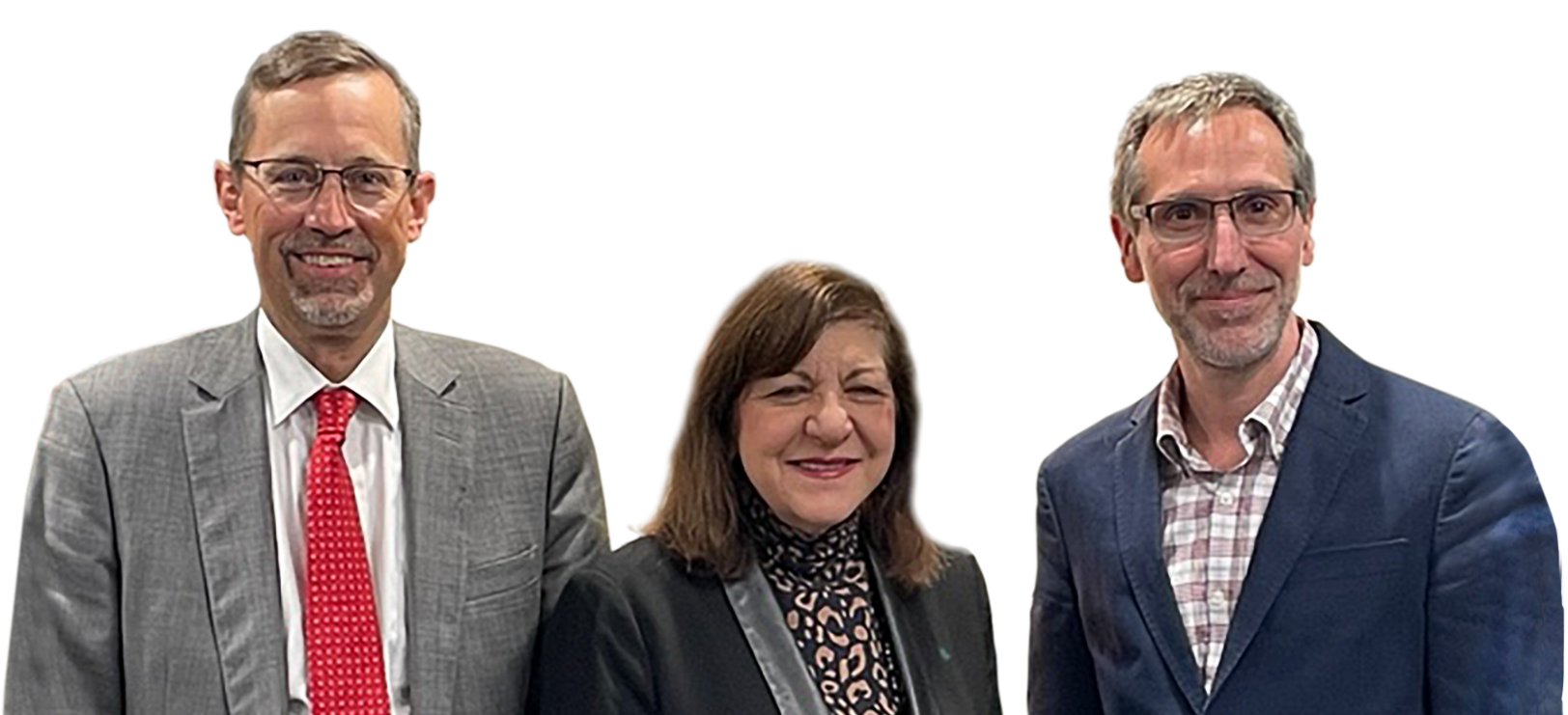


Left to right: 2021–2022 AACR President David A. Tuveson, MD, PhD, FAACR; AACR Chief Executive Officer Margaret Foti, PhD, MD (hc); and 2020–2021 AACR President Antoni Ribas, MD, PhD, FAACR.
The theme of the AACR Annual Meeting 2021, “Discovery Science Driving Clinical Breakthroughs,” is also the theme of this report. The report outlines all the ways in which AACR programs and initiatives support the efforts of investigators across the continuum of cancer research to save, extend, and enhance the lives of patients with cancer.
Once again in 2021, these efforts took place under the shadow of the ongoing COVID-19 pandemic. Under the leadership of our COVID-19 and Cancer Task Force, the AACR continued to safeguard science and public health during the crisis. The second AACR Virtual Conference on COVID-19 and Cancer presented the latest advances in basic, clinical, translational, and epidemiological science, as well as the survivorship and policy issues that are critical to overcoming the virus. In addition, AACR educational forums and publications addressed the challenge of vaccine hesitancy among patients, advocates, and the public.
As this report documents, despite these challenges 2021 was another year of spectacular achievement. The AACR launched its newest journal, Cancer Research Communications, providing an open-access, rapid publication outlet for high-quality research that spans the full spectrum of cancer science and medicine. Scientists, clinicians, and other health care professionals—especially early-career scientists—continued to join the AACR, as our member ranks exceeded 50,000 for the first time. And AACR Project GENIE® announced two data releases, increasing the size of this international pancancer registry to nearly 121,000 sequenced tumors from more than 111,000 patients—including data that were included as part of a successful regulatory submission to the FDA that led to the approval of the first-ever KRAS inhibitor, sotorasib.
In addition, the AACR’s long-standing efforts to diversify the cancer workforce and improve outcomes for patients in underserved populations were bolstered by several new partnerships. The Lustgarten Foundation and the Breast Cancer Research Foundation chose the AACR to administer new grants to support early-career scientists from diverse backgrounds who have been underrepresented in cancer research, and Bristol Myers Squibb and Merck partnered with the AACR to support research focused on eliminating cancer disparities. Further, the AACR partnered with the Bristol Myers Squibb Foundation (BMSF) and National Medical Fellowships, providing our expertise in education and training to enhance the BMSF Diversity in Clinical Trials Career Development Program. To meet the program goals of increasing the diversity of patients enrolled in clinical trials and fostering underrepresented early-career investigator physicians, the AACR is organizing a workshop on excellence in clinical trial implementation and training 250 community oriented clinical trial investigators over the next five years.
We are proud that AACR programs have facilitated the groundbreaking advances made by cancer scientists and clinicians over the past year. We are even more proud that AACR initiatives ensure that the benefits of those breakthroughs are distributed more equitably. As the first and largest professional organization dedicated to advancing progress against cancer, we will continue to work with all sectors of the cancer community until we achieve our shared mission to prevent and cure all cancers—for all patients.

Margaret Foti, PhD, MD (hc)
AACR Chief Executive Officer

Antoni Ribas, MD, PhD, FAACR
AACR President, 2020–2021

David A. Tuveson, MD, PhD, FAACR
AACR President, 2021–2022